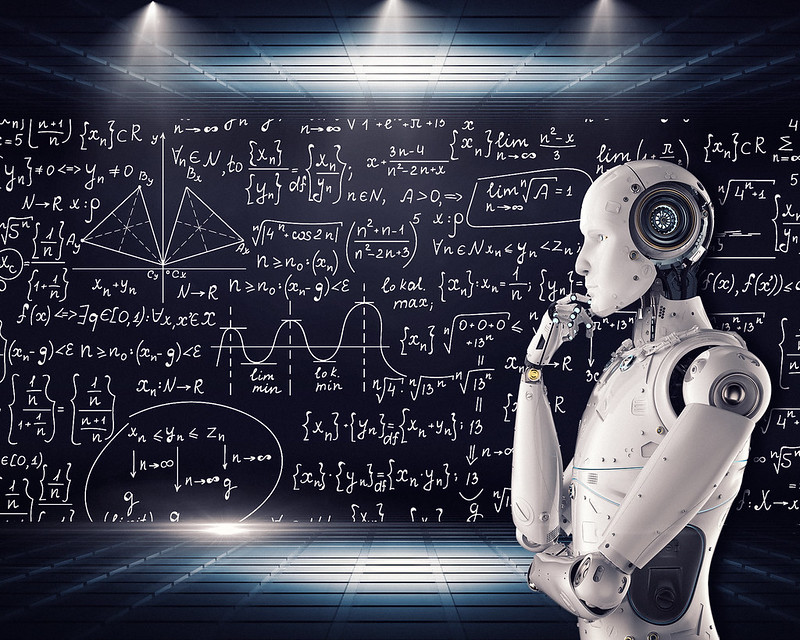Yes. And maybe robots can do a lot more than be creative. Although maybe that’s not the right question. First, let’s get to the bottom line of what creativity is. The question is whether there is a definite, one-sided definition of creativity.

Defining Creativity
Creativity, in all its glory, is abstract. One can say that creativity is the ability to create something original. It can be a poem, a story, or a song. But then this brings us to the question of originality. Is there such a thing as original?
Literary authorities always say that “everyone already wrote everything.” The challenge, now, to budding writers (or even to the already established ones) is how they can present things in a new perspective. There are a hundred different stories about war and there’s a thousand even more about love. We can see creativity in a story about a love found in war or vice versa. Whether or not this story is original depends on the context of the writer, the zeitgeist, and the writing techniques that the writer applied.
This is where the “nothing can come from nothing” belief about originality and creativity by Sir Joshua Reynolds comes in. The Greeks widely believed in a muse. The guidance of the muses, the gods, the entities larger than the human self, the universe made all forms of art possible.
So when talking about originality and creativity, it is important to first understand that originality in the creative context is creating something out of something. Creativity means taking an existing idea, deconstructing it, combining it with other ideas and forms, innovating it, and making it even better. Creativity is a cycle of decomposition and composition.
Human vs AI Creativity
Humans deconstruct the existing ideas in the universe provided by the muses. We add our own humane experiences to these ideas that make it unique for each one of us although admittedly, human experience is universal. The AI will decompose and recompose the already deconstructed and reconstructed human ideas to create a new one, a new form of art, a poem, a song, story.
So, yes, robots can be creative. But can they be as creative as humans? If so (and this, for sure, is the most common question), can AI soon replace human creatives?
AI As Replacements to the Human Workforce
According to a study by Nesta, creative jobs are the least threatened by replacements of AI and robots. “Creative” jobs refer not only to artists (writers, musicians, painters, etc.). Creatives are also “architects, web designers, IT specialists and public relations professionals.”
Repetitive jobs will be most likely take over by the future of AI. Robots will more likely replace people in industries in which jobs require them to receive and process data (like those in factories). Interestingly enough, the “simple” jobs like cleaning are least likely to be affected by AI.
Artificial Intelligence and robots are good at doing jobs when the work environment is predictable. They have a hard time completing jobs when they deal with an inconsistent environment and complex materials. These are the basics of the creative job: always changing and demands interpretation.
Today, scientists and AI-enthusiasts alike debate whether robots can replace humans in the workplace. The answer is always no.
Artificial or Human Intelligence?
Robots are not humans and vice versa. The AI is made to better the human experience, not replace it. There is no replacement for the loss of war or the gains of love. Emotions and experiences make humans human. But it would also be unfair to dismiss the future of AI and robots altogether.
There is already evidence that AI can be creative too. Zackary Scholl’s AI program that has written a poem, or IBM’s supercomputer Watson that created a new recipe, and even Harold Cohen’s AARON that paints abstract images. Humans taught patterns and fed existing ideas to these AIs which the AI deconstructed and reconstructed.
Scholl’s AI program can never replace Shakespeare or Virginia Woolf. Watson creates new recipes but human chefs still need to make sure that those are eatable. AARON is and will never be Van Gogh or Da Vinci but the AI created an independent artwork with its own identity.
Can AI Be As Creative As Humans?
AI can be as creative as humans but it cannot and can never replace humans. AI differs from the intelligence that humans have. In the context of creativity where humans get original ideas from the muses, the AI can get the original ideas from humans.